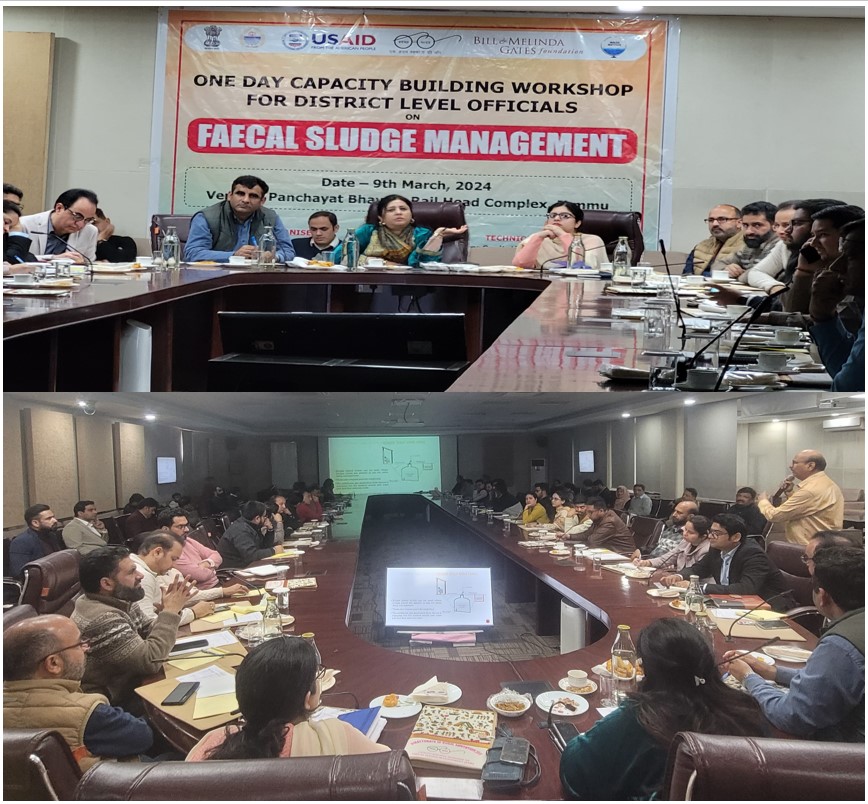DG Rural Sanitation inaugurates capacity building workshop on Faecal Sludge Management in Jammu
JAMMU, MARCH 09: A one-day capacity building workshop on Faecal Sludge Management (FSM) was today inaugurated by Anoo Malhotra, Director General Rural Sanitation, J&K in presence of Director Rural Development Department, Jammu Mohammad Mumtaz Ali, and Deputy Director Rural Sanitation, Jammu Sanna Khan at Panchayat Bhawan, Rail Head, Jammu.

The workshop also witnessed active participation from Assistant Commissioner Panchayats of Jammu division, Block Development Officers, engineers from different government departments and officers of Jammu Municipal Corporation (JMC).
While addressing the participants in her inaugural address, Ms. Malhotra said: “Effective Faecal Sludge Management (FSM) is pivotal in ensuring public health and environmental sustainability by promoting the safe collection, treatment, and disposal or reuse of faecal sludge.”
She further said that it was imperative for communities to adopt responsible FSM practices, especially in areas with inadequate sanitation infrastructure.
The workshop aimed to enhance the knowledge and skills of district-level officers from the Rural Development Department and bring together key stakeholders to address the challenges and opportunities associated with FSM and reinforce the importance of sustaining the Open Defecation Free (ODF) Plus status.
The day’s agenda comprised several informative sessions, each focusing on different aspects of Faecal Sludge Management. These interactive sessions encouraged participants to share their feedback and were characterized by their proactive engagement.
The sessions began with the issues and challenges with respect to FSM in Rural areas, where participants actively shared their experiences and provided valuable insights. The participants gained insights into various toilet typologies and their operational mechanisms, highlighting the importance of understanding the diverse needs of communities. The interactive nature of the session facilitated lively discussions and exchange of ideas.
This session delved into the strategic planning required at the district level to address FSM effectively. It underscored the significance of long-term planning and collaboration among stakeholders for sustainable FSM practices. Participants actively contributed their perspectives on planning and implementation strategies.
The final session explored the technological advancements and options available for establishing faecal sludge treatment plants. Participants were introduced to innovative solutions aimed at improving treatment efficiency and environmental sustainability by an expert team from WASH Institute. Their proactive engagement in exploring technological options showcased their commitment to advancing FSM initiatives.
The workshop served as a platform for knowledge exchange, capacity building, and collaborative action towards achieving comprehensive FSM goals. It is hoped that the insights gained, and discussions held during the workshop will catalyze positive changes and drive progress in FSM initiatives across the region.






